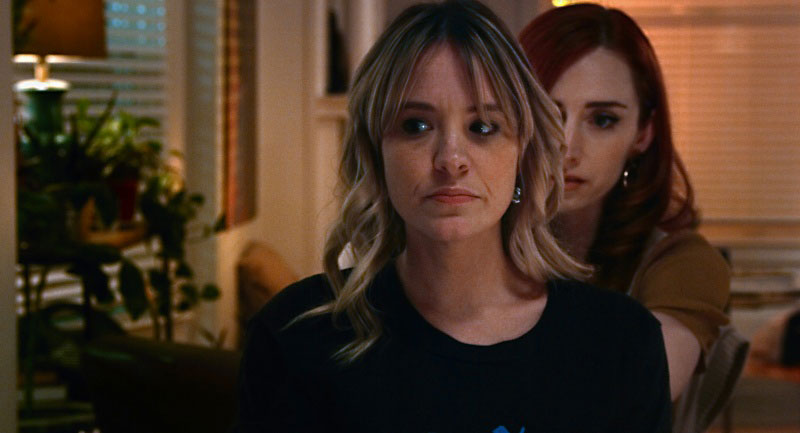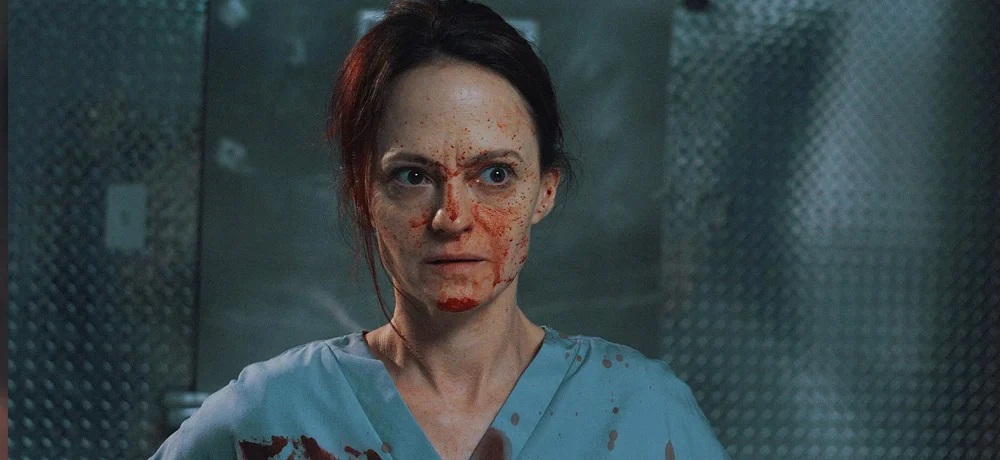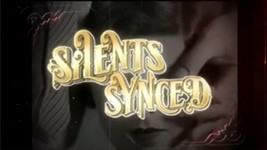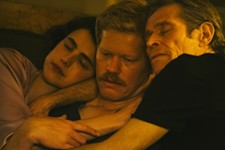Brea Grant, Modern Scream Queen
The Stylist star, 12 Hour Shift director, and UT grad becomes a powerhouse of horror
By Richard Whittaker, Fri., Sept. 25, 2020
Most filmmakers are glad when they have one film that garners critical attention, but actor/writer/director Brea Grant has three wildly differing and highly anticipated genre titles coming. That makes 2020 truly the year of Brea Grant, but she laughed at the notion. "I don't like that the Brea Grant year happened during COVID. That's lame."
The Marshall native and UT-Austin grad gained the ultimate badge of Austin acting honors early in her career (she played Landry's short-term girlfriend Jean in season 2 of Friday Night Lights). Since then, in her 13-year screen career she's already racked up dozens of roles, many with a horror twist like Christmas chiller All the Creatures Were Stirring, and hybrid relationship drama/midnight monster attack After Midnight.
Yet this fall sees her secure her position as not just a horror regular, but a leading light of the scene. At the Fantasia International Film Festival, she picked up the best screenplay award for her second feature as a director, 12 Hour Shift, a pitch-black comedy in which Angela Bettis (May) plays Mandy, an Arkansas nurse with a side-hustle in spare organs. During the same festival, Grant scored rave reviews as the lead in a second film she scripted, Lucky, a classic slasher mixed with a savage look at the psychological damage done to survivors of assault. Now she completes the round with The Stylist. The feature, adapted by writer/director Jill Gevargizian from her short of the same name, screens/streams this week as part of Fantastic Fest's online celebration. It stars Grant as Olivia, a bride-to-be who becomes the target of hairdresser and obsessive stalker Claire (Najarra Townsend, who played the same part in the original short, which, coincidentally, screened at Fantastic Fest 2016).
It's been a year of shifting expectations for Grant. Lucky was supposed to play as SXSW, while 12 Hour Shift was booked for the Tribeca Film Festival – both of which ended up being canceled. This would have been her first time on the circuit as a director, so she's missing that very specific in-person experience, and the long rounds of meetings, that directors go through. "As an actor," she said, "I kind of go in for a day or two and do one Q&A and a day of press." However, on the positive side she sees a wider audience than ever becoming first-time fest patrons. "A lot of people who can't attend festivals for a lot of reasons – financial, or where they are, or their day job – have been able to attend these online, so there's been something interesting about the democratization of putting these festivals online for these communities."
There's another big change happening behind the camera that predates the pandemic. Grant said that, before making these films, she realized she had only worked on sets with women directors three times in her entire career: Now she's done four in a row (12 Hour Shift, Lucky, and The Stylist, plus Megan Rosati's "ASMR" segment of anthology horror Bleed), all horror-tinged stories. She noted, "It's a genre that's always relied on female leads, so it makes more sense that we're seeing more women in the director role."
Austin Chronicle: I remember, at the beginning of the year, you were all, "Oh, I have two films playing festivals this spring."
Brea Grant: Oh, little did I know.
AC: With COVID-19 throwing everything in the air, what's been the decision-making processes for handling the festival circuit and releases?
BG: I had these two different movies and two totally different schemes, so the thought process was completely different for each film. I think all filmmakers went through the same process where we all went, 'Maybe we should just sit on our hands and just wait,' but no financier went through that process. Every financier was like, "We're not waiting."
Both movies sold within a few weeks of the festivals because we still did a buyers' screening for Lucky straight after SXSW, and same for 12 Hour Shift after Tribeca – or when they both would have happened – and they both sold. The rest of the year and the film festival world decision-making process was all up to the people who bought the movie. Magnolia and all our international distributors made the choice that we would play Fantasia and some other festivals through the rest of the year.
And every festival's different. I'll get an email from one who says, "We're geoblocked, so it's only people who can watch this movie in this area at this specific times." Other ones are like, "We're just gonna put it online, but it's a very safe platform."
AC: How did you end up with two scripts getting shot so close together?
BG: It's a fluke. Years of trying to get these movies off the ground, and both of them just happened to have gotten greenlit in the same year. I shot them three weeks apart. I shot 12 Hour Shift, I came home, I had three weeks home, starred in Lucky, and I was in post, editing 12 Hour Shift while I was in Lucky. And I have The Stylist.
AC: They're tonally very different. What made you go, "12 Hour Shift is the one I want to direct"?
BG: I wrote them two years apart, so as far as the writing goes it makes sense that I was in different places when I wrote them. Lucky was greenlit first. It had been at a couple of different production companies, and for a while I was attached as a director, but when I took them to Epic they specifically wanted to work with Natasha again because they had done Imitation Girl, so when they came to me they said, "We want to make this movie, but we want Natasha to direct it and you to star in it." I never intended on starring in it, but it felt like a good way to stay involved in the movie while letting Natasha do her thing at the helm.
12 Hour Shift, to be honest, I had a more clear idea of what it looked like than Lucky, so it worked out perfectly. It's much more my aesthetic, and much more me in general. When it comes to the stuff that I'm interested in making, it's much more comedic, it's much more lighthearted.
AC: What was it that made you want to work with Natasha?
BG: I was a fan of Imitation Girl, and we had met socially. She read the script, and she called me and had a really good take on it – part of it being that she liked that the character of May didn't have this solid conclusion where she didn't become a better person over the movie. She got that, and she didn't question it, and honestly she didn't have a ton of notes on my script. I felt like a lot of people would read the script and were looking for different things than I was looking for. She seemed to understand it from the very beginning, and I knew she would bring something very different to what I would bring to it. She added this very surreal, Lynchian quality.
AC: Were you always going to play May?
BG: No, no, there were other actresses attached to it at various times when it was at other production companies, but I think it ended up being good for me. I started writing the script to work through dealing with a stalker of my own who showed up at my house, and working through the court system here in L.A., with restraining orders, and then taking that story and telling other women about it and realizing how universal it was. So acting in the movie ended up being a nice conclusion for me as a person, and working through a lot of that stuff.
But it was hard. I was editing 12 Hour Shift while I was working on Lucky. I had no downtime. There were days where I would go from the editing room on 12 Hour Shift and shoot a night shoot in Lucky – and I'm in every scene. So it was a lot, but because Natasha is so great at directing and being in charge, I never felt like it was that difficult.
AC: And Angela's so great in 12 Hour Shift. She has this vaguely contained jitter, this constant sense of "Yeah, no, gonna get through the day." What was Mandy like in the original script, and how did Angela change her?
BG: Mandy is based on women that I knew in my small town in East Texas in the Nineties. I feel like I knew her very well – a woman who was overworked, kind of over it, but had this professional job and didn't really have a lot of other options.
When writing her, I wanted this kind of female anti-hero to be my main character. I didn't want her to be agreeable, I didn't want her to have a lot of heroic qualities, but I wanted us to cheer for her in the end. When Angela read the script, she got that immediately. We had conversations about the character of Mandy, and I said to her at one point, "I don't care if you're likable. I don't care if people like you," and she totally agreed and got that right away.
I wish I could take more credit for what she did with the character, but I can't. She came in, and the main thing that we worked on was her drug addiction and her feelings towards other people, but she came in with that character, ready to go. She's from Texas, though, so she has that same background that I have, that she knew people like this growing up. I have to say, Angela is not like that character at all. She is very giving and nice.
AC: Speaking about casting against type. Micky Foley. Giant, adorable, Santa-loving teddy bear of a man, and you cast him as a gang boss.
BG: You know, when he came out, between takes he was signing books. That's how nice he is. We shot in a small town in Arkansas, and when you shoot in a place where they don't make a lot of movies, people just find out what's happening. People start showing up with their Mick Foley memorabilia, and he was signing in between takes. He's so nice, and he's playing completely against type, but I think he did a really amazing job.
AC: Both 12 Hour Shift and Lucky have complicated lead characters, both women, neither completely likable, and oddly that seems permissible now. For a long time it felt like, if you had a woman as the central character, they had to be perfect, or if they were besieged they had to come out the other end wonderfully stronger. You turn away from that in both scripts.
BG: I think it's got more permissible in the last few years with male protagonists. I always point to that TV show, House, which went on for like a billion years, and it's about a guy who is unlikable but we end up enjoying his story because he's intelligent and he makes these interesting choices. I think we're in a place in cinema where we have a lot more women writing, and they're creating more complicated female characters, and that was my goal with both of these movies.
In order to create feminist media, we're going to have to acknowledge that women are people and people have flaws, so therefore women have flaws, and we have to be able to show them. With a character like May in Lucky, she comes from a background where she thinks she has to be self-sufficient, she has to be selfish, and she has to be self-sufficient in order to get what she wants. She would not make this sudden U-turn because she's faced with obstacles. She would lean into being more selfish.
For me, that's interesting, and when you make indie movies you doing interesting stuff. I'm not making studio movies. We're making movies for under half a million dollars. I wanted to do things that were risky and interesting, and I wanted to create these complicated female characters that we don't necessarily like and make us question things about ourselves. There is a problem within feminism right now that is the character of May, the very privileged, white feminist. We're seeing the effects of that being the face of feminism for many years, and I think May is very representative of that.
A Celebration of Fantastic Fest
Online at www.fantasticfest.com, Sept. 24-Oct. 1. Find news, interviews, and reviews at austinchronicle.com/fantastic-fest
The Stylist World Premiere at a Celebration of Fantastic Fest, Sat. Sept. 26, 8pm. RSVP for free screening access at www.fantasticfest.com.
12 Hour Shift will be released Oct. 2.
Lucky has been acquired by horror streaming service Shudder.










